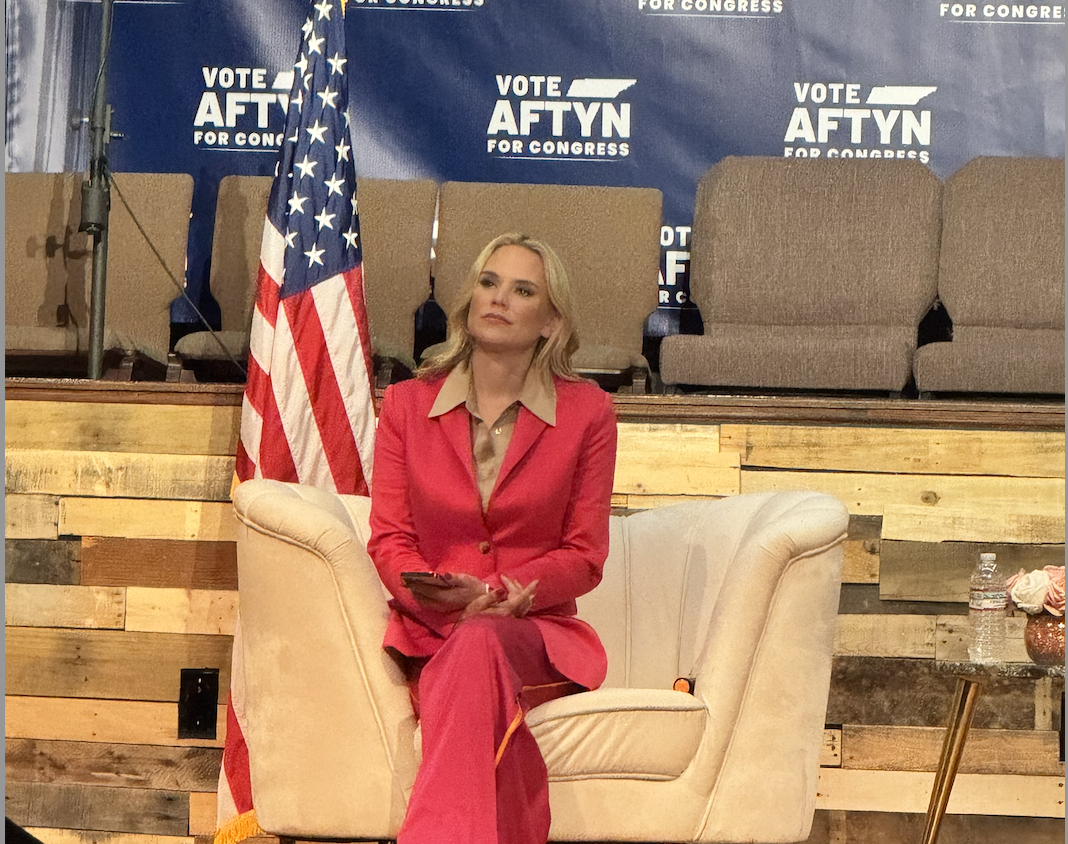NASHVILLE, Tenn. — Today, on his 365th day in office as Mayor of Metropolitan Nashville and Davidson County, Mayor John Cooper released his first-year report and updated Commitment Tracker, detailing significant progress made toward his administration’s goal of creating a city that works for everyone.
Despite a tumultuous year that has included an EF-3 tornado on March 3rd and the global coronavirus pandemic, Mayor Cooper’s administration has worked to ensure progress on 51 promises made by during the Mayor’s 2019 campaign. The linked document demonstrates accountability on those promises.
Having inherited the worst financial crisis in Nashville’s history, Mayor Cooper’s administration took immediate steps to address $70 million in required revenue replacements. Years of strained financial management, including one-time asset sales, other non-recurring revenues, and depleted fund balances left Metro in an historically difficult budget position. As a result, in November of 2019, the Tennessee State Comptroller formally rejected Nashville’s existing FY20 budget, warning that Metro would be required to balance its budget, build up its cash balances, and institute a cash management policy to avoid a state takeover of the city’s finances.
The Mayor’s Office swiftly responded, presenting a plan that included painful but necessary spending cuts, cost-saving measures, and new recurring revenue sources to balance the city’s budget and overcome Metro’s $41.5 million budget gap. These new revenue sources include $12.6 million from the Music City Center and $3.6 million from the Nashville Convention and Visitors Corporation.
Despite the city’s budget crisis, Mayor Cooper continued to invest in neighborhood infrastructure throughout Davidson County. In the fall of 2019, the Mayor’s Office redirected $17.5 million from the stalled SoBro-Gulch pedestrian bridge project. Funds were diverted immediately to shovel-ready neighborhood infrastructure projects, including $13.63 million for 52 separate culvert and bridge projects in 24 council districts around the county. Beginning in the spring of 2020, the Mayor’s Office of Transportation also held 11 Public Listening Sessions across Davidson County to help inform the development of Metro’s Draft Transportation Plan, which is based on more than 2,600 total public engagements and will be released to the public later this week.
In March of 2020, the dual challenges of the tornado and the onset of the COVID-19 pandemic required a greater level of action to protect the city’s cash flow and maintain essential city services, including trash pickup, public safety, and road repair. Depleted cash reserves had left the city without a rainy-day fund. And Metro Finance, consistent with the state’s projections, estimated a $470 million decline in revenue over a 16-month time frame. Metro announced a freeze on all hiring, except for public safety and other critical services, travel, promotions, and pay raises. All Metro departments were asked to identify immediate cost reduction opportunities, and all non-essential capital spending was placed on an indefinite hold. The Mayor’s Office of Performance Management worked with Metro departments to produce over $234 million in spending cuts and savings, proposed a difficult property tax increase as part of the city’s crisis budget, and found additional new recurring revenue sources.
Cost-saving measures have since been reimplemented throughout Metro Government as discussion of a proposed charter referendum threatens to destabilize Metro’s ability to continue providing essential services and turn the city’s financial instability into a chronic and permanent problem.
“No one could have anticipated the difficulties that Nashvillians have encountered this year, but we are a community that can overcome any odds,” said Mayor Cooper. “The choices we’ve made have often been difficult, but they’ve always been necessary to keep people safe, to provide financial solvency for our city, and make us ready to emerge, once again, as a community where everyone has the opportunity to succeed. Nashville’s budget crisis, the ongoing public health emergency, the sharp and sudden recession that has hurt our local economy – we will continue to face these challenges while we keep Nashville moving forward.”
“Every city in America must address the challenges of 2020. But great cities choose to do more than simply overcome,” added Mayor Cooper. “We must continue to build up both the local and global consumer confidence required to support our economic restart; create a community that respects the rights and the dignity of all its residents; strive to provide all our students with an excellent and equitable education; and invest in not only repairing our roads, but in creating even safer and more efficient ways to move about the city. We will continue to fulfill all our promises to the residents of Davidson County as we work toward creating a city that supports our growing needs as a community.”
(LINK: Updated Four-Year Commitment Tracker)
MAYOR JOHN COOPER: FIRST-YEAR REPORT
Highlights from the Four-Year Commitment Tracker
FINANCIAL STEWARDSHIP
–
Securing new revenue sources for the city
Despite facing the worst financial crisis in Nashville’s history, the Mayor’s Office took quick action to help balance the city’s budget by securing additional streams of recurring revenue. Mayor Cooper secured a $12.1 million annual PILOT from the Convention Center Authority in FY20, which became $16.8 million in FY21; an additional FY20 contribution of $5 million from the Convention Center Authority; and an increase in the city’s MOU with the Convention Center Authority from $10 million in the FY20 budget to $35 million in the FY21 budget.
Protecting the city’s cash balances
The Mayor’s Office worked closely with Metro Finance to anticipate the effects of both the March 3rd tornado and the COVID-19 pandemic on the city’s operating and capital funds by implementing a hiring, pay raise, promotion, and travel freeze to help cut costs. All Metro departments were also instructed to find immediate cost-reduction opportunities, and all non-essential capital spending was also put on an indefinite hold. The FY21 budget included $64 million in new revenues, over $50 million in cost savings, and a difficult $1.06 property tax increase that has helped maintain essential county-wide services. The FY21 budget is the first budget since FY13 that did not propose depleting the city’s fund balances.
Improving efficiency across Metro Government
Although the Blue Ribbon Commission has been suspended due to COVID-19, Mayor Cooper created the Office of Performance Management to work on process and efficiency improvements across Metro Government. OPM has implemented a system for tracking Metro’s operational performance on a monthly basis, which has helped to closely monitor services’ demands and outcomes. Mayor Cooper’s commitment to transparency and accountability through the OPM’s efforts allow for better informed decision-making based on data. OPM’s mission is to actively work with Metro departments to find opportunities to optimize the use of Metro’s resources.
Protecting taxpayer dollars
Mayor Cooper renegotiated the soccer stadium deal to eliminate financial risk to taxpayers by removing the rent guarantee on the stadium, representing a potential savings of up to $35 million over the next decade. The soccer ownership group agreed to pay for infrastructure work that would have cost taxpayers at least $19 million. In addition to saving $54 million, the result is a more unified, successful Fairgrounds, providing for additional space between the soccer stadium and the historic speedway.
In response to Metro’s $42 million budget shortfall in FY20, the Mayor’s Office submitted a balanced budget and corrective action plan that was approved by the state comptroller’s office. Part of the budget solution was updating Metro Water Services’ PILOT, which resulted in an additional $10 million annually.
Cutting government spending
Because of the significant fiscal constraints facing Metro, the FY20 Capital Spending Plan was much smaller than in previous years, focusing on emergency needs such as repairs, replacement, and maintenance. The average Capital Spending Plan over the previous four fiscal years was $441.8 million. Mayor Cooper’s FY20 CSP was $154 million, equally split between General Government and Metro Nashville Public Schools.
Introducing capital spending reform
Mayor John Cooper announced early in his tenure that his administration was partnering with former Metro Council Budget and Finance Chair Bob Mendes to write legislation that reforms future Capital Spending Plans. In the interest of improved clarity and government transparency, the legislation requires Metro Council and the Mayor’s Office to fully itemize and appropriate funds for public projects before construction begins.
EDUCATION
Funding education despite reduced capital spending
Mayor Cooper’s $154 million FY20 Capital Spending Plan was equally split between General Government and Metro Nashville Public Schools. MNPS received 20 percent more capital funding than in the previous Capital Spending Plan.
Bridging the digital learning divide
In response to COVID-19, Mayor Cooper and the COVID-19 Financial Oversight Committee directed $24 million in funding from the federal CARES Act to provide every MNPS student in Nashville-Davidson County with a laptop and, for students who need it, internet connectivity to help bridge the digital learning divide.
Protecting public education
Mayor Cooper directed Metro Legal to support MNPS and Shelby County Schools in their effort to challenge the State of Tennessee’s BEP funding formula. Metro successfully joined the suit in August 2020, and the next court date has been set for October 2021.
NEIGHBORHOODS
Equitably distributing federal relief funds
At the recommendation of the COVID-19 Financial Oversight Committee and with the approval of the Metro Council, the Mayor’s Office allocated $18.5 million in direct awards made to community partners to assist Davidson County small businesses, independent music venues, and residents in need of rent, mortgage, utility, and food security assistance during the COVID-19 public health crisis.
These allocations have been made in accordance with various Metro Council resolutions and the “Our Fair Share” needs assessment, which was produced in partnership between the Mayor’s Office and The Equity Alliance. The assessment was produced by surveying historically underserved communities in Nashville to ensure that the needs of Black and Brown residents, people experiencing homelessness, and minority-owned small businesses are equitably represented in the consideration of CARES Act distributions.
Investing in neighborhood infrastructure
In October 2019, Mayor Cooper redirected $17.5 million from the stalled SoBro-Gulch pedestrian bridge project. Funds were immediately diverted to neighborhood infrastructure projects, including $13.63 million for 52 separate culvert and bridge projects in 24 council districts around the county.
Protecting Nashville’s small businesses
In response to the COVID-19 pandemic, Mayor Cooper and the COVID-19 Financial Oversight Committee directed $5.7 million in funding from the federal CARES Act to go towards small business relief. Mayor Cooper has advocated for additional small business relief funding from the state.
Disaster relief for small business owners
By working closely with the state and federal government, Metro helped to ensure that U.S. Small Business Administration disaster loans would be made available to local businesses in Davidson County following the devastating March 3rd tornado. By March 31st, more than $1,931,600 in disaster loans were approved by the SBA for Davidson County businesses and residents with losses resulting from the severe storms, tornadoes, straight-line winds and flooding. Businesses and private nonprofit organizations of any size can use these loans to repair or replace disaster damaged or destroyed real estate, machinery and equipment, inventory, and other business assets.
Safeguarding Nashville’s natural environment
Mayor Cooper’s 48-member Sustainability Advisory Committee (SAC) has submitted a substantial
number of policy and investment recommendations related to preservation of natural resources,
expansion of urban tree canopy, new standards for Green Streets, and improving support for biodiversity on Metro Parks-owned lands.
These recommendations will be published with forthcoming Climate Action and Adaptation Plans that will fulfill Metro’s requirements under Mayor Cooper’s renewed commitment to the Global Covenant of Mayors for Climate & Energy – the world’s largest cooperative effort among mayors and city officials to reduce greenhouse gas emissions, track progress, and prepare for the impacts of climate change. The Natural Resources Subcommittee of the SAC is co-chaired by executive directors for the Cumberland River Compact and the Tennessee chapter of the Trust for Public Land.
Mitigating future flood damage
Mayor Cooper’s administration has actively continued Metro Water Services FEMA buyout program. Removing a home from the floodplain that has received significant flood damage and is not built at an
elevation that meets current Metro building code is an effective measure for reducing future property damage and removing residents from the risk of flooding. Metro has identified hundreds of homes eligible for the buyout program since the May 2010 flood and is continuing to seek funding for future buyout programs. Home buyouts are a proven solution to reducing flood damage and improving public safety.
Expanding Davidson County’s tree canopy
To further beautify our city, clean our air, and reinforce Nashville’s defenses against flooding and other natural disasters, Metro is ramping up tree-planting and is responsible for approximately 30 percent of all trees planted through the Root Nashville campaign. Mayor Cooper signed a bill sponsored by Council Member Angie Henderson requiring commercial and multi-family developments to plant trees in tandem with new sidewalk projects built within what the NashvilleNext plan designates as a “Center.”
Mayor Cooper also signed Executive Order 5, establishing guidelines governing Metro’s tree planting/maintenance, and designating the Urban Forestry staff within Metro Water Services’ stormwater division as lead coordinator on all tree-related activities. The Order also increases tree-planting requirements for Metro’s capital projects, provides for the protection and replacement of trees on Metro properties, strengthens tree-related protocols around development services, and invests in the tracking and monitoring of trees and tree care.
Creating safer streets for all Nashvillians
In October 2019, the Mayor’s Office announced the rollout of lower speed limits in neighborhood streets. The neighborhood speed limit reduction initiative affected neighborhood streets previously signed at 30 miles per hour, reducing the posted speed limit to 25 miles per hour.
During Phases 1 and 2 of Nashville’s “Safer At Home” Order, the Mayor’s Office and the Metro Division of Transportation launched a “Slow Streets” program in several Nashville neighborhoods. This initiative reinforces that streets should be safe and comfortable for all users – pedestrians, cyclists, transit users, and motorists. Walk/Bike Nashville is currently working with Metro to solicit applications from neighborhood leaders to launch a second round of “Slow Streets” in the fall of 2020.
TRANSPORTATION
Delivering a people-first transportation plan for Nashville
Despite the many challenges Nashville has faced throughout 2020, Mayor Cooper is delivering on his commitment to produce a new people-first transportation plan within his first year in office. The public is encouraged to review the full draft plan at Nashville.gov when it is posted and provide the Mayor’s transportation team with questions and feedback during a series of Web-based community meetings to be held during the month of October.
Prioritizing the transportation needs of our community
During the first and second quarters of 2020, the Mayor’s administration held 11 Public Listening Sessions throughout Davidson County, along with numerous discussions with community stakeholders and all 40 Metro Council Members. After thoughtfully processing feedback received through more than 2,600 total engagements, Metro is sharing a Draft Transportation Plan for additional, community-wide input.
Categories for a first phase of proposed investment reflect our communities’ and the region’s stated priorities: Mass transit, neighborhood infrastructure (sidewalks, bikeways, greenways), a “state of good repair” for roads and bridges, traffic operations and signals, and safety/Vision Zero.
Making smart transportation investments that protect taxpayer dollars
The first phase of the Draft Transportation Plan represents a total $1.8 billion investment over the course of the next ten years, which will be funded by individual, opportunistic funding strategies, while more comprehensive, dedicated funding streams – via the IMPROVE Act’s authorizing mechanism for referendums, or other available legal framework – can be pursued once the nation’s economy recovers from the pandemic-induced downturn.
PUBLIC SAFETY
Improving accountability in public safety
In June, the Mayor’s Office engaged with experts and the city’s body-worn camera (BWC) vendor, Motorola, to dramatically reduce implementation costs and address other critical implementation issues that allows Metro to resume movement toward the full deployment of BWCs and in-car cameras. Estimated time of completion is next spring. West Precinct’s implementation was completed on August 28, 2020. Implementation within the Special Response Tactical Unit was completed on September 14, 2020. Implementation of cameras at East Precinct and within the Juvenile Crime Task Force is scheduled for October of 2020.
Creating a new standard in policing
In June, Mayor Cooper quickly committed Metro government to an emerging national conversation on policing reform, following former President Obama’s call to mayors across the United States to commit to use-of-force reviews through a collaborative and inclusive effort. Mayor Cooper created the Policing Policy Commission, which has been directed to review use-of-force policies within the MNPD; examine how the MNPD recruits, screens, hires, and promotes officers; and develop necessary reforms to set a new national standard in policing and public safety.
Strengthening Nashville’s emergency response needs
Mayor Cooper met with representatives from SEIU Local 205, and staff from the Mayor’s Office worked with Human Resources to better understand the unique resource challenges at the Emergency Communications Center. Metro hired a new DEC Director, Stephen Martini. Entry-level workers in the Department of Emergency Communications received a pay adjustment. As of September 11, 2020, there were no vacancies in the Department of Emergency Communications. All 191 FTE positions have been filled.
Ensuring a new, community-built standard on policing leadership
In July, Mayor John Cooper announced a roadmap for selecting Metro Nashville’s new Chief of Police to bring transparency to the selection process run by Metro Human Resources. The process created by the Mayor’s Office has been designed to engage residents and neighborhoods throughout Nashville to identify the qualities needed in our next Chief of Police, laying the groundwork for a robust, nationwide search for a new police executive informed by expert advice on recruiting and 21st century policing principles. Metro Human Resources finalized a review committee to assist with the next stage of the Chief of Police selection process, which includes reviewing all 57 applicants who have applied for the position.
Reinforcing Nashville’s public safety workforce
As of December 23, 2019, the MNPD had 110 officer vacancies. As of September 2020, the number of unfilled positions was approximately 70 officers. The Mayor’s Office worked with Metro Human Resources to analyze and implement a market-based compensation adjustment for select roles where retention was a challenge. Despite a severe and unexpected economic recession, Metro was able to give patrol officers a pay increase. The department was also able to graduate a new recruit class and a lateral hire class.
OPERATIONS
Measuring Metro’s performance
The Mayor’s Office of Performance Management (OPM) implemented a metrics’ monitoring system containing two years of historical data and is currently tracking every departments’ operating performance on a monthly basis. This system is currently tracking over 200 operating metrics and will continue to add metrics that relate to high-impact projects, constituent services and satisfaction measures, community partnership effectiveness, and expenditures tracking.
Building accountability with those we serve
OPM has a variety of process improvement projects across Metro, working with different departments identifying opportunities to optimize resources and improve outcomes. By the end of 2020, OPM will launch the Beta version of Metro’s Performance Portal, where the public will be able to interact with
metrics monitored by OPM. Through this effort, Nashvillians will have access to information in a transparent format that is easy to understand and will hold Metro accountable. Metro’s opportunities, operational challenges, and success stories will be accessible and open to the public.
Expanding Metro’s capacity to serve Spanish-speaking residents
In February, the Mayor’s Office announced all hubNashville call center employees would be offered optional 6-week Spanish language training to help better serve Nashville’s Spanish-speaking neighbors. hubNashville’s website and mobile app are already available in a variety of languages, including Spanish, Somali, Arabic, Burmese, and Kurdish.
Negotiating and managing long-term savings for Davidson County taxpayers
After considerable analysis regarding the proposed sale of the District Energy System, the Mayor’s Office announced in April that, as one of the largest customers of DES, it would be in the city’s best interest to maintain control of the system. Careful negotiation and management would result in a lower General Subsidy and savings for Davidson County taxpayers. Metro Water Services, having a background in management of distribution and collection systems as well as industrial plants, has taken over contract management of the system. Operation of the system remains with Constellation NewEnergy, Inc.
AFFORDABLE HOUSING
Creating more efficient pathways to affordable housing development
Metro’s fast track permitting process for affordable housing developers was amended in February to include inspections and certificates of occupancy by the Department of Codes and Building Safety for qualifying affordable housing developments. The original fast track legislation was created in the interest of adding as many affordable housing units throughout Davidson County as possible, and the inclusion of more departments will get more units open more quickly. Since the initial fast track permitting process was implemented in March 2019, permit wait times for developers have decreased, with some developers experiencing an expedited wait time down from 4 months to just 6 weeks.
The fast track ordinance directs the Metropolitan Planning Department, the Department of Public Works, the Department of Codes and Building Safety, Metro Water Services, and the Nashville Fire Department to develop and implement a prioritization process for the departmental review of permit applications and related reviews for affordable housing projects as identified in BL2019-1491.









